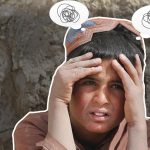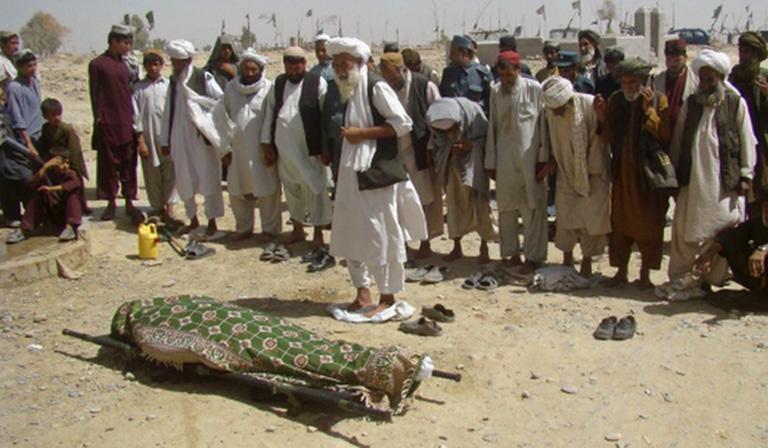The Afghan government announced on Saturday that it was investigating the unfortunate incident of a girl and her father by Afghan soldiers in the Kandahar Province, amid multiple complaints by local residents that the security forces have for years been accused of extra-judicial killings and other abuses.
According to several accounts given by locals, the girl, whose name was Naza was either 10, 13 or 17 years of age. The girl had been out shepherding a herd of sheep near their home in Shah Wali Kot District in the Kandahar province when she was shot dead by Afghan soldiers.
Another version of the story says Naza had been out in the fields near her home collecting vegetables when the soldiers had opened fire.
Khalil Ahmad Mujahid, a member of Parliament from Kandahar, said “The family searched for the girl the whole night, and found her body in their lands the next day.”
The next day, when her father went to the army base, carrying her dead body, he, too, ended up being shot dead. Later on, the girl’s relatives also went to the gates of the army base in the village in southern Afghanistan, to protest and to seek an explanation the shootings, but the soldiers allegedly opened fire on them too, and also wounded the girl’s uncle, Mr. Mujahid said.
It was, however, unclear why soldiers shot the girl. As of now, the officials have remained tight-lipped regarding the details of the incident, which led to country-wide backlash against the government forces.
A spokesman for Afghanistan’s Defense Ministry said it was yet investigating the incident and could not provide even the most basic details. Bahir Ahmadi, a spokesman for the governor of Kandahar, said a delegation led by Gen. Bismillah Waziri, the chief of the Afghan Army, had arrived in Kandahar Province on Friday to look into the episode.
Local officials as well as human rights activists struggled tofind the exact details of the tragic incident. According to media reports, the incident occurred in Kondelan, close to the front lines of fighting between the Taliban and the Afghan forces. Cell phones rarely work there.
“There is only one military base of army; no other government presence in the area,” said the district governor of Shah Wali Kot District, Mr. Fazel Mohammad Gharib Shah.
Mehrabuddin Sulemankhail, a member of a family that lost four members, including a kid, during a raid by the CIA-backed units in the eastern Khost Province back in 2018, said that not only has there been no accountability for that raid till date, but another family member has also remained in the custody of the same forces for several months without any reason.
Razo Khan, one of the brothers of the detained who has been in Kabul knocking on government official’s doors to seek justice, has threatened to burn himself in protest if justice is not served.
Shaharzad Akbar, Afghanistan’s new human rights chief has called for a renewed focus on providing justice to the victims who faced various abuses from all sides of the war.
“The issue of justice doesn’t just relate to the Taliban,” Ms. Akbar, who was appointed as the chairwoman of Afghanistan’s Independent Human Rights Commission last July, told a local newspaper.
“All sides, including the Taliban, need to be held accountable. For the Human Rights Commission, it makes no difference whether the civilians were victims of explosions and suicide bombings of the Taliban, or victims of American airstrikes and the special forces of the Afghan government. They are all victims, and their voices need to be heard.”


